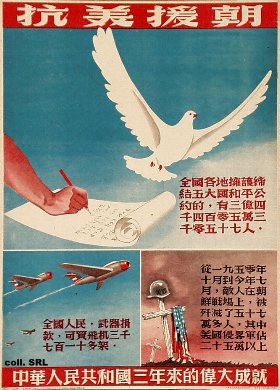|
Propaganda
Propaganda is communication that is primarily used to influence or persuade an audience to further an agenda, which may not be objective and may be selectively presenting facts to encourage a particular synthesis or perception, or using loaded language to produce an emotional rather than a rational response to the information that is being presented. Propaganda can be found in a wide variety of different contexts. Beginning in the twentieth century, the English term ''propaganda'' became associated with a Psychological manipulation, manipulative approach, but historically, propaganda had been a neutral descriptive term of any material that promotes certain opinions or ideology, ideologies. A wide range of materials and media are used for conveying propaganda messages, which changed as new technologies were invented, including paintings, cartoons, posters, pamphlets, films, radio shows, TV shows, and websites. More recently, the digital age has given rise to new ways of dissemina ... [...More Info...] [...Related Items...] OR: [Wikipedia] [Google] [Baidu] |
Xuanchuan
Propaganda in China is used by the ruling Chinese Communist Party (CCP), and historically by the Kuomintang (KMT), to sway domestic and international opinion in favor of its policies. In the People's Republic of China (PRC), this includes censorship of proscribed views and an active promotion of views that favor the government. Propaganda is considered central to the operation of the CCP and the government of the People's Republic of China, with propaganda operations in the country being directed by the CCP's Central Propaganda Department. Aspects of propaganda can be traced back to the earliest periods of Chinese history, but propaganda has been most effective in the twentieth and twenty-first centuries owing to mass media and an authoritarian government. Propaganda was an important tool in legitimizing the Nationalist government, which retreated to Taiwan in 1949. Propaganda during the Mao era was known for its constant use of mass campaigns to legitimize the party and the p ... [...More Info...] [...Related Items...] OR: [Wikipedia] [Google] [Baidu] |
Fake News
Fake news or information disorder is false or misleading information (misinformation, disinformation, propaganda, and hoaxes) claiming the aesthetics and legitimacy of news. Fake news often has the aim of damaging the reputation of a person or entity,Schlesinger, Robert (April 14, 2017)"Fake news in reality" '' U.S. News & World Report''. or making money through advertising revenue. Although false news has always been spread throughout history, the term ''fake news'' was first used in the 1890s when sensational reports in newspapers were common. Nevertheless, the term does not have a fixed definition and has been applied broadly to any type of false information presented as news. It has also been used by high-profile people to apply to any news unfavorable to them. Further, disinformation involves spreading false information with harmful intent and is sometimes generated and propagated by hostile foreign actors, particularly during elections. In some definitions, fake news i ... [...More Info...] [...Related Items...] OR: [Wikipedia] [Google] [Baidu] |
Edward Bernays
Edward Louis Bernays ( ; ; November 22, 1891 − March 9, 1995) was an American pioneer in the field of public relations and propaganda, referred to in his obituary as "the father of public relations". While credited with advancing the profession of public relations, his techniques have been criticized for manipulating public opinion, often in ways that undermined individual autonomy and democratic values. His best-known campaigns include a 1929 effort to promote female smoking by branding cigarettes as feminist " Torches of Freedom", and his work for the United Fruit Company in the 1950s, connected with the CIA-orchestrated overthrow of the democratically elected Guatemalan government in 1954. Critics argue that his involvement in Guatemala facilitated US imperialism and contributed to decades of civil unrest and repression, raising ethical concerns about his role in undermining democratic governance. He worked for dozens of major American corporations, including Procter & Ga ... [...More Info...] [...Related Items...] OR: [Wikipedia] [Google] [Baidu] |
Computational Propaganda
Computational propaganda is the use of computational tools (algorithms and automation) to distribute misleading information using social media networks. The advances in digital technologies and social media resulted in enhancement in methods of propaganda. It is characterized by automation, scalability, and anonymity. Autonomous agents (internet bots) can analyze big data collected from social media and Internet of things in order to ensure manipulating public opinion in a targeted way, and what is more, to mimic real people in the social media. Coordination is an important component that bots help achieve, giving it an amplified reach. Digital technology enhance well-established traditional methods of manipulation with public opinion: appeals to people's emotions and biases circumvent rational thinking and promote specific ideas. A pioneering work in identifying and analyzing of the concept has been done by the team of Philip N. Howard at the Oxford Internet Institute who since 2 ... [...More Info...] [...Related Items...] OR: [Wikipedia] [Google] [Baidu] |
Propaganda (book)
''Propaganda'' is a book written by Edward Bernays in 1928. It incorporated the literature from social science and psychological manipulation into an examination of the techniques of public communication. Bernays wrote the book in response to the success of some of his earlier works such as ''Crystallizing Public Opinion'' (1923) and ''A Public Relations Counsel'' (1927). ''Propaganda'' explored the psychology behind manipulating masses and the ability to use symbolic action and propaganda to influence politics and effect social change. Walter Lippmann was Bernays's unacknowledged American mentor and his work ''The Phantom Public'' greatly influenced the ideas expressed in ''Propaganda'' a year later. The work propelled Bernays into media historians' view of him as the "father of public relations." Synopsis Chapters one through six address the complex relationship between human psychology, democracy, and corporations. Bernays's thesis is that "invisible" people who create know ... [...More Info...] [...Related Items...] OR: [Wikipedia] [Google] [Baidu] |
Harold Lasswell
Harold Dwight Lasswell (February 13, 1902 – December 18, 1978) was an American political scientist and communications theorist. He earned his bachelor's degree in philosophy and economics and his Ph.D. from the University of Chicago. He was a professor of law at Yale University. He served as president of the American Political Science Association, American Society of International Law, and World Academy of Art and Science. According to a biographical memorial written by Gabriel Almond at the time of Lasswell's death, and published by the National Academies of Sciences in 1987, Lasswell "ranked among the half dozen creative innovators in the social sciences in the twentieth century." At the time, Almond asserted that "few would question that he was the most original and productive political scientist of his time." Areas of research in which Lasswell worked included the importance of personality, social structure, and culture in the explanation of political phenomena. Lasswel ... [...More Info...] [...Related Items...] OR: [Wikipedia] [Google] [Baidu] |
Soft Power
In politics (and particularly in international politics), soft power is the ability to co-option, co-opt rather than coerce (in contrast with hard power). It involves shaping the preferences of others through appeal and attraction. Soft power is non-coercive, using culture, political Value (ethics), values, and foreign policies to enact change. In 2012, Joseph Nye of Harvard University explained that with soft power, "the best propaganda is not propaganda", further explaining that during the Information Age, "credibility is the scarcest resource". Nye popularised the term in his 1990 book, ''Bound to Lead: The Changing Nature of American Power''. In this book he wrote: "when one country gets other countries to want what it wants might be called co-optive or soft power in contrast with the hard or command power of ordering others to do what it wants". He further developed the concept in his 2004 book, ''Soft Power: The Means to Success in World Politics''. Explanation of concept ... [...More Info...] [...Related Items...] OR: [Wikipedia] [Google] [Baidu] |
Congregation For The Evangelization Of Peoples
The Congregation for the Evangelization of Peoples (CEP; ) was a congregation (Roman Curia), congregation of the Roman Curia of the Catholic Church in Rome, responsible for Catholic missions, missionary work and related activities. It is also known by its former title, the Sacred Congregation for the Propagation of the Faith (), or simply the ''Propaganda Fide''. On 5 June 2022, it was merged with the Pontifical Council for Promoting the New Evangelization into the Dicastery for Evangelization. It was responsible for Latin Church pre-diocesan missionary jurisdictions: mission sui iuris, missions sui iuris, apostolic prefectures (neither entitled to a titular bishop) and apostolic vicariates. Eastern Catholic Church, Eastern Catholic equivalents like apostolic exarchate are the responsibility of the Dicastery for the Eastern Churches. However many former missionary jurisdictions – mainly in the Third World – remain, after promotion to diocese of (Metropolitan) Archdiocese, und ... [...More Info...] [...Related Items...] OR: [Wikipedia] [Google] [Baidu] |
Gerundive
In Latin grammar, a gerundive () is a verb form that functions as a verbal adjective. In Classical Latin, the gerundive has the same form as the gerund, but is distinct from the present active participle. In Late Latin, the differences were largely lost, resulting in a form derived from the gerund or gerundive but functioning more like a participle. The adjectival gerundive form survives in the formation of progressive aspect forms in Italian, Spanish and Brazilian Portuguese and some southern/insular dialects of European Portuguese. In French the adjectival gerundive and participle forms merged completely, and the term ''gérondif'' is used for adverbial use of ''-ant'' forms. There is no true equivalent to the gerundive in English, but it can be interpreted as a future passive participle, used adjectivally or adverbially; the closest translation is a passive to-infinitive non-finite clause such as ''books to be read''. That reflects the most common use of the Latin ger ... [...More Info...] [...Related Items...] OR: [Wikipedia] [Google] [Baidu] |
Everett Dean Martin
Everett Dean Martin (July 5, 1880 – May 10, 1941) was an American minister, writer, journalist, instructor, lecturer, social psychologist, social philosopher, and an advocate of adult education. He was an instructor and lecturer at The New School for Social Research in New York City from 1921 to 1929, and served on the board of directors of The New School from 1925 to 1932. He was the final director of the Charles Sprague Smith, People's Institute of Cooper Union in New York City from 1922 to 1934. Martin was born in Jacksonville, Illinois, on July 5, 1880. Graduating with honors at the age of 24 from Illinois College in Jacksonville, he moved on to Chicago, attending McCormick Theological Seminary from 1904 until his ordination as a Congregational Minister in 1907.Everett Dean Martin: liberal in adult education, https://www.jstor.org/stable/pdf/42589283.pdf Martin received a Litt.D. (Doctor of Letters) degree from Illinois College in 1907. He was best known for his advocacy ... [...More Info...] [...Related Items...] OR: [Wikipedia] [Google] [Baidu] |
Biased News
Media bias occurs when journalists and news producers show bias in how they report and cover news. The term "media bias" implies a pervasive or widespread bias contravening of the standards of journalism, rather than the perspective of an individual journalist or article. The direction and degree of media bias in various countries is widely disputed. Practical limitations to media neutrality include the inability of journalists to report all available stories and facts, and the requirement that selected facts be linked into a coherent narrative. Government influence, including overt and covert censorship, biases the media in some countries, for example China, North Korea, Syria and Myanmar. Politics and media bias may interact with each other; the media has the ability to influence politicians, and politicians may have the power to influence the media. This can change the distribution of power in society. Market forces may also cause bias. Examples include bias introduced b ... [...More Info...] [...Related Items...] OR: [Wikipedia] [Google] [Baidu] |



